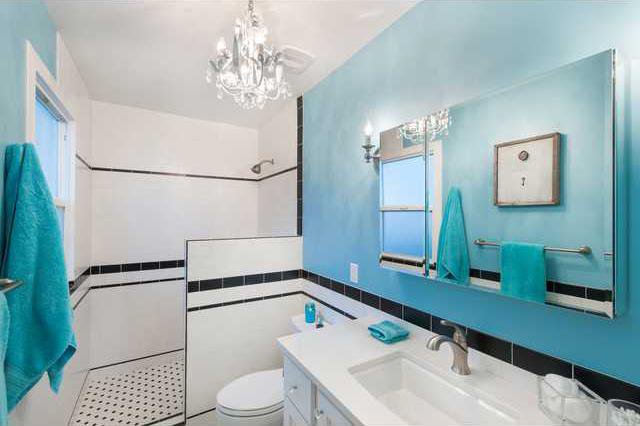One of the most daunting and dreaded parts of a home remodel is obtaining a permit. Working with government offices in general can be a little intimidating.
Because of that apprehension and the cost involved, homeowners are sometimes tempted to not get the proper permits when they do a home remodel. We cant say we blame them, but it isnt a good idea to cheat the system because it is breaking the law.
What is a permit?
The rationale behind building permits is twofold: First, the object is to construct buildings that are built properly and that comply with existing building codes; second, the permit serves to update the municipalitys records so the assessed value and the property taxes will reflect the accurate value of the home. No one likes a hike in property taxes, but everyone wants their house built to code.
Each municipality has a list of what information is required to obtain a building permit. This generally includes two sets of drawings, consisting of an accurate site plan, floor plans, a roof plan, exterior elevations, a wall or building section, a door and window schedule and an electrical plan. In addition, if any of the changes involve structural elements, structural calculations and plans stamped by a licensed structural engineer will also be required.
It is not necessary to have a licensed structural engineer or licensed architect stamp residential drawings (double-check the city requirements to be sure); however, it is usually beyond a homeowners skill level to provide the required documentation on anything but the simplest project scope. If you choose not to use an architect, some contractors are able to supply the required documentation, or a drafter or home designer may be employed.
For a comprehensive remodeling project, it can be complicated to know which permits are required and when. Besides an overall building permit, some subcontractors need individual permits, such as the electrician. One of the advantages of using general contractors is that they understand what is required and will oversee the process.
For a limited project, the subcontractor should be responsible for obtaining the proper permits. For instance, if you are replacing windows, the installer should get a permit. You, as the homeowner, are responsible to make sure the laws are followed. Make sure you ask about permitting when interviewing companies or subcontractors you are considering hiring to work on your house.
City and county building officials can be very nice to work with. Most are willing to talk to homeowners and help them understand what is required. Generally, these days, each city has its own website, which is a good place to start to understand the process.
Permits for very simple projects may be obtained over the counter, meaning on the day you bring in your application and necessary documentation. Most projects, however, are logged in when submitted and will undergo a more comprehensive review process. Depending on the size of the municipality and the time of the year, this can take from weeks to months. Make sure you factor in this step on your remodeling timeline.
Some municipalities are updating their process to require that all documentation be submitted electronically rather than on paper. The goals are to streamline the process and to be more environmentally responsible.
When the submitted documents have been reviewed, comments will be issued. These will include questions about things that may be shown on the plans and also about things that are missing from the plans. The architect and the engineer will update the drawings and calculations as required, and the plans will be resubmitted for further review. This process will go on until the reviewer is satisfied that all criteria have been met.
This is just the beginning of the permit process discussion. Next week, we will continue with when a permit is needed, how much a permit costs, who is responsible for getting a permit and what happens if one isnt obtained.
Because of that apprehension and the cost involved, homeowners are sometimes tempted to not get the proper permits when they do a home remodel. We cant say we blame them, but it isnt a good idea to cheat the system because it is breaking the law.
What is a permit?
The rationale behind building permits is twofold: First, the object is to construct buildings that are built properly and that comply with existing building codes; second, the permit serves to update the municipalitys records so the assessed value and the property taxes will reflect the accurate value of the home. No one likes a hike in property taxes, but everyone wants their house built to code.
Each municipality has a list of what information is required to obtain a building permit. This generally includes two sets of drawings, consisting of an accurate site plan, floor plans, a roof plan, exterior elevations, a wall or building section, a door and window schedule and an electrical plan. In addition, if any of the changes involve structural elements, structural calculations and plans stamped by a licensed structural engineer will also be required.
It is not necessary to have a licensed structural engineer or licensed architect stamp residential drawings (double-check the city requirements to be sure); however, it is usually beyond a homeowners skill level to provide the required documentation on anything but the simplest project scope. If you choose not to use an architect, some contractors are able to supply the required documentation, or a drafter or home designer may be employed.
For a comprehensive remodeling project, it can be complicated to know which permits are required and when. Besides an overall building permit, some subcontractors need individual permits, such as the electrician. One of the advantages of using general contractors is that they understand what is required and will oversee the process.
For a limited project, the subcontractor should be responsible for obtaining the proper permits. For instance, if you are replacing windows, the installer should get a permit. You, as the homeowner, are responsible to make sure the laws are followed. Make sure you ask about permitting when interviewing companies or subcontractors you are considering hiring to work on your house.
City and county building officials can be very nice to work with. Most are willing to talk to homeowners and help them understand what is required. Generally, these days, each city has its own website, which is a good place to start to understand the process.
Permits for very simple projects may be obtained over the counter, meaning on the day you bring in your application and necessary documentation. Most projects, however, are logged in when submitted and will undergo a more comprehensive review process. Depending on the size of the municipality and the time of the year, this can take from weeks to months. Make sure you factor in this step on your remodeling timeline.
Some municipalities are updating their process to require that all documentation be submitted electronically rather than on paper. The goals are to streamline the process and to be more environmentally responsible.
When the submitted documents have been reviewed, comments will be issued. These will include questions about things that may be shown on the plans and also about things that are missing from the plans. The architect and the engineer will update the drawings and calculations as required, and the plans will be resubmitted for further review. This process will go on until the reviewer is satisfied that all criteria have been met.
This is just the beginning of the permit process discussion. Next week, we will continue with when a permit is needed, how much a permit costs, who is responsible for getting a permit and what happens if one isnt obtained.





